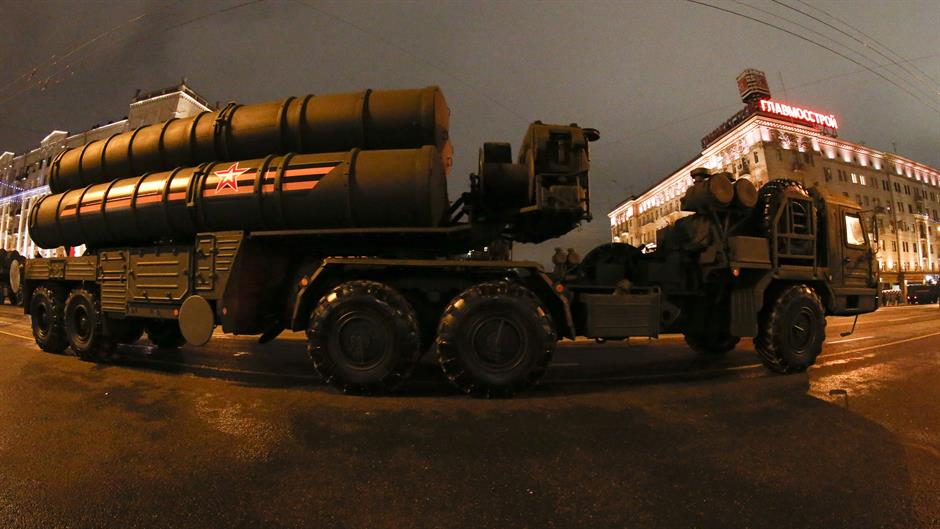
Russia will upgrade Syria's air defence system after a series of statements over the past week chastising Israel for the downing of a Russian aircraft, CNN reports.
The move, announced by the Russian Defence Ministry on Monday, has drawn criticism from Israel, which regularly conducts air strikes in Syria against what it says are Iranian targets.
In a tweet Monday, United States National Security Adviser John Bolton called the Syrian government's purchase of Russia's S-300 air defence missiles "a significant escalation."
Russia's Defence Ministry has said the system would be transferred to Syria in the next two weeks. The ministry said that Israel was "solely" to blame for bringing down the IL-20 aircraft last week.
The plane was inadvertently shot down by Syrian forces during an Israeli air strike in the Syrian coastal province of Latakia.
Russia's military accused Israel of manoeuvring its aircraft to use a Russian plane "as cover," putting it in the line of fire of Syria's anti-aircraft system. Russia's military also said that Israel provided misleading information about the air strike over a military hotline.
The two countries follow a de-confliction mechanism, keeping each other informed about their military actions in the country.
Israel's military denied the accusations and said it followed established protocols in communicating with Moscow, presenting full information about the incident to Russia in an after-action review.
In a phone call with Russian President Vladimir Putin, Israeli Prime Minister Benjamin Netanyahu held the Syrian government and its Iranian allies responsible for downing the Russian plane.
"Transferring advanced weapons systems into irresponsible hands will increase the dangers in the region," Netanyahu said during the phone call in response to the announcement. He added that Israel "will continue to defend its security and its interests."
But Russia has argued that it had previously withheld the advanced military hardware from Damascus as a favour to Israel.
The downing of the plane prompted Moscow to reverse the decision, according to Russia's defence minister.
"In 2013, at the request of the Israeli side, we suspended the delivery of the S-300 complex to Syria which was prepared to receive delivery and for which Syrian military personnel were trained," said Russian Defence Minister Sergei Shoigu on Monday. "Today the situation has changed. And it is not our fault."
Russia has argued that its deployment of the S-300 system would boost the security of its contingent in Syria.
The improved radar system enables Syrian surface-to-air missiles to better discern targets and helps prevent the accidental shooting down of Russian planes. But the new system potentially makes Israeli air strikes in Syria more difficult.
The missile range of the S-300 is around 250 kilometres, allowing defence systems that are set to be positioned in the northern Syrian coastal province of Latakia to cover Israel's northern territories.
Russia's military operates a major airbase in Latakia province, the same region where Israel conducted last week's airstrike.
The Russian military also says it will jam communications and Global Positioning Systems (GPS) over the Mediterranean Sea, which Israeli planes often fly over for their bombing runs.
Kakvo je tvoje mišljenje o ovome?
Učestvuj u diskusiji ili pročitaj komentare





 Srbija
Srbija
 Hrvatska
Hrvatska
 Slovenija
Slovenija



























































